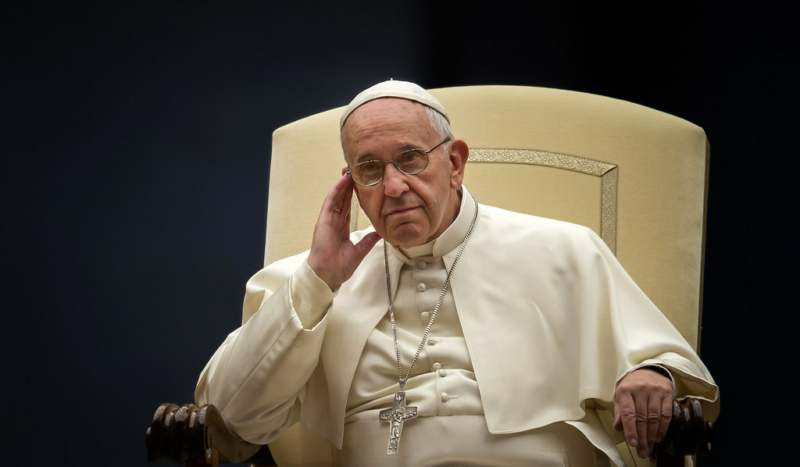
Catholic Church England and Wales | Flickr
CV NEWS FEED // Pope Francis expressed concern about the Catholic Church in Germany in a letter to four women who are former members of the German Synodal Way.
The women, who resigned from their positions in February of this year, wrote to Pope Francis on November 6 about “the current developments within the Church in Germany.”
Pope Francis responded with his own letter dated November 10, published by German news outlet Welt on November 21.
“Your concerns regarding the current developments within the Church in Germany have reached me, and I share your concerns,” Francis wrote:
There are indeed numerous steps being taken by significant segments of this local Church that threaten to steer it increasingly away from the universal Church’s common path. This doubtlessly includes the establishment of the synodal committee you referenced. This committee aims to set up a consultative and decision-making body.
However, as outlined in the corresponding resolution, its proposed structure is not in alignment with the sacramental structure of the Catholic Church. Consequently, its formation was forbidden by the Holy See in a letter dated Jan. 16, 2023, which received my specific endorsement.
Francis then referenced his 2019 letter entitled “Letter to the Pilgrim People of God in Germany,” in which
I sought not to find “salvation” in constantly evolving committees, nor to persist in self-absorbed dialogues rehashing the same themes. Rather, I aimed to reemphasize the importance of prayer, penance, and adoration. I urged an openness and a call to action to engage with our brothers and sisters, especially those found at the thresholds of our church doors, in the streets, within prisons, hospitals, public squares, and cities (as mentioned in section 8). I firmly believe that in these places, the Lord will guide us.
Francis thanked the women for their “contributions to theology and philosophy” and for their witness to the Faith. “I kindly ask that you continue to pray for me and for our shared commitment to unity,” Francis concluded.
The women who wrote to Francis on November 6 are: Katharina Westerhorstmann and Marianne Schlosser, both professors of theology, Hanna-Barbara Gerl-Falkovitz, a religious philosopher, and Dorothea Schmidt, a journalist.
The four women quit the German Synodal Way in February of this year, writing that the Synodal Way was “casting doubt on central Catholic doctrines and beliefs,” according to a statement published by Welt.
Launched in 2019, delegates in the German Synodal Way were reportedly voting on and discussing controversial topics such as the ordination of women, same-sex blessings, among other topics.
This is not the first time Francis has expressed concern about the Church in Germany. In January Francis described the German Synodal Way as “elitist, unhelpful, and running the risk of bringing ideological harm to Church processes,” according to Catholic News Agency.
According to Catholic News Agency, Thomas Sternberg, former president of the Central Committee of German Catholics (ZdK), indicated that “the controversial process [of the German Synodal Way] from the outset wanted to achieve changes to the Church’s teaching on homosexuality, the ordination of women, and other topics.”
“The resolutions of the past three years have not only called into question essential foundations of Catholic theology, anthropology as well as Church practice, but have reformulated and in some cases completely redefined them,” the women wrote in their resignation announcement. “We cannot and will not share responsibility for that.”
According to Welt,
A current resolution provides for the establishment of a “Synodal Council” made up of laypeople and bishops, which will make binding decisions on theological or financial issues throughout Germany. Rome rejects such a body on the grounds that it would question the competence of the bishops as the sole highest decision-makers in the church.
Two Vatican authorities therefore ruled out the possibility of synodal councils in writing at the beginning of this year. Nevertheless, the DBK and ZdK had a provisional working group (“Synodal Committee”) meet in Essen on November 10th to prepare such a new body.
Expressing gratitude for the “clarity of [Pope Francis’] words,” Westerhorstmann told Welt:
We were surprised that the Pope replied to us within a few days. In our view, the fact that his letter bears the exact date on which the Synodal Committee was constituted may not be a coincidence. The concern for unity is not only relevant for Germany, but is of great importance for the entire universal church.
